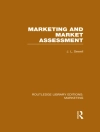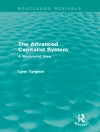The BRICS countries – Brazil, Russia, India, China and South Africa – are currently at the crossroads of major structural economic and political changes. This book provides a comparative analysis of the national innovation systems of the five BRICS countries and the trends in each of their science, technology and innovation policies. The BRICS Project was a workshop launched as part of the Globelics Scientific Committee, a global research network on the economics of learning, innovation and competence. The BRICS Project identifies and analyses development opportunities; highlights common characteristics and challenges of the BRICS countries; and helps to uncover possible paths to fulfil the BRICS countries’ socio-political and economic development potential. The BRICS Project also reveals development alternatives that contain the potential to help both developed and underdeveloped countries to overcome the problems brought by ‘an exhausted production and consumption system and a malignant regulatory and financial regime’. The collected research and workshop papers are now available in BRICS and Development Alternatives, an invaluable contribution to the understanding of the rise of these new emerging science and technology (S&T) powers and to improving evidence-based S&T policymaking with regard to these countries.
Зміст
List of Contributors; Preface; Acknowledgements; Foreword – Bengt-Åke Lundvall; Science, Technology and Innovation Policies in the BRICS Countries: an introduction; Achievements and Shortcomings of Brazil’s Innovation Policies; Prospective Agenda for Science and Technology and Innovation Policies in Russia; Science, Technology and Innovation Policies in India: Achievements and Limits; Science and Technology and Innovation Policy in China; The South African Innovation Policies: Potential and Constraint; Notes
Про автора
José Eduardo Cassiolato is Coordinator of Rede Sist and Professor at the Institute of Economics, Federal University of Rio de Janeiro, Brazil. He is also a member of Globelics Scientific Committee – a Global Research Network on the Economics of Learning, Innovation and Competence.
Virginia Vitorino is policy officer at the European Commission, Directorate-General for Research, International Cooperation Directorate.
Bengt-Åke Lundvall is Professor in Economics at the University of Aalborg. He has worked on science and technology issues in relation to employment and international competitiveness and currently concentrates on innovation theory, national systems of innovation and competence building and on the analysis of the economics of knowledge.












